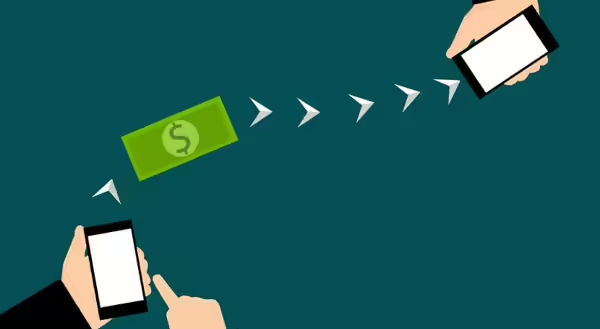
Over the past 14 years, I've used different forms of money transfer services to send and receive money. I've had both positive and challenging experiences, and every time, I have an internal discussion with myself, debating if this is the most cost-effective and safest way to send or receive money. Whether it's sending a wire transfer to my niece in another state for her birthday or sending money internationally to my nephew for back-to-school expenses, these are my two main concerns: fees and protection. I also often wonder about the experiences of other consumers who use these services.
What are money transfers?
If you are unfamiliar with money transfers services, here is a quick breakdown. Money transfers (often referred to as electronic transfers) allows customers to move money through legal/regulated methods. There are different types of transfers, such as person-to-person, person-to-business, government-to-person, etc. (Shy, 2011). Many financial companies provide services to consumers worldwide, and they continue to evolve to make services more accessible while addressing consumer needs. In this post, I focus on person-to-person money transfers that take place through banks, credit unions, and financial companies. I first started using money transfer services when I was in college and far away from home. It allowed family members to send quick cash through my bank or a financial company.
Why do we use them?
Domestic and international money transfers allow friends and family to send and receive money that helps take care of day-to-day needs and save for future goals. Within the international context, money transfers (also known as remittance transfers) assist loved ones and are important to the families who receive them as well that country's economy.
These transfers provide a convenient option for many consumers. For instance, someone in the U.S. can send $200 at 2:00 p.m. to a relative in the Caribbean who receives it minutes later. Many domestic transfer services have the same rules and requirements as international transfers. Domestic services allow consumers to send money through institutions (e.g., banks, credit unions). For example, some banks offer wire transfers from account-to-account, where the payer set up a transfer to a payee using their name, bank account number, and the bank routing number. I recently started using this method since my nieces and nephews are getting older and have access to their bank accounts. It makes sending $20 to support their fundraising efforts easier and more convenient. My financial institution doesn't charge for small domestic transfers, but some do have a fee.
The Concerns I Mentioned
Fees: While some banks offer free domestic wire/money transfers, in most cases, customers pay to use those services, which could cost anywhere from $4.99 to more than $90.00 depending on the amount, location, and company/institution. The payment type the sender uses to transfer money (e.g., credit card, debit cards, electronic checks) sometimes affect the transfer fee. There are resources available for you to compare cost, including one from NerdWallet that I find useful. However, there are others available through financial institutions and other online sources.
Protection: Over the past few years, there has been an increase in the number of reports of wire transfer fraud. Scammers are becoming bolder and may use money transfer businesses to pick up the cash they exploited through telephone, investment, and other scams. How do you protect yourself from any possible money transfer fraud?
- Sending: If you are sending money to loved ones, please make sure you are using services that are regulated and read reviews from other consumers.
- Receiving: If you are picking up money, check to make sure the company requires proper identification
- If you are sending to others, please be aware of people calling requesting cash (wire transfers) to collect prizes, etc. The Federal Trade Commission (FTC) has held financial companies accountable for ineffectively managing fraudulent activities in their organizations, and they are responsible for creating new anti-fraud measures. These include creating comprehensive protection programs for consumers, investigating problematic agents, and using electronic systems to spot and block fraudulent activities and share consumer complaints to the FTC.
Even though money transfer services offer a direct and convenient option for many, there are still several challenges for consumers. This article offers only a brief overview. So, whether you are new to money transfers or an experienced user, compare the services, always explore free options, use secure sites, and visit the FTC website to learn more about the responsibilities of financial companies that offer money transfer services.
Follow on Twitter @SaveFearlessly